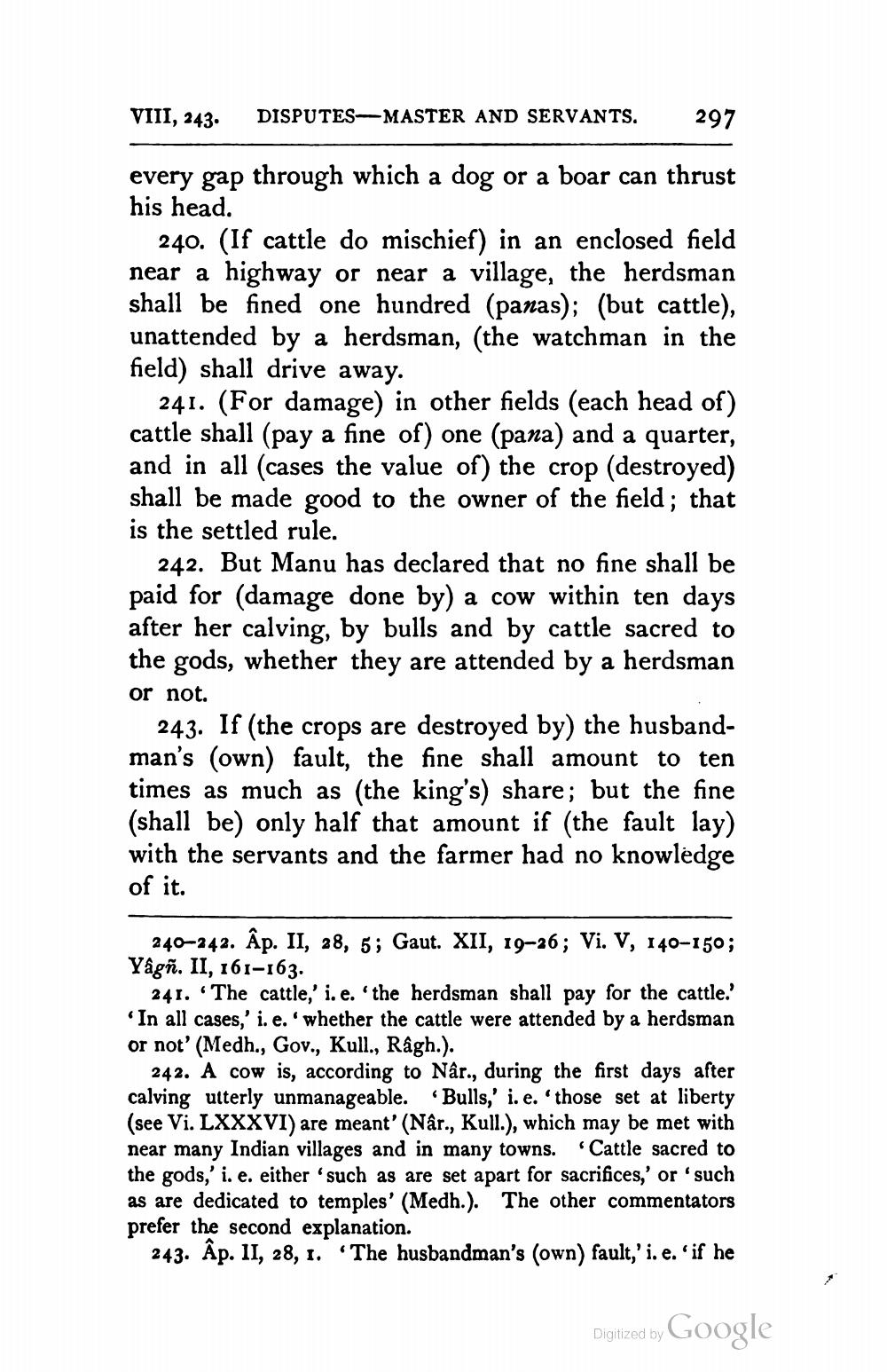________________
VIII, 243.
DISPUTES— MASTER AND SERVANTS.
297
every gap through which a dog or a boar can thrust his head.
240. (If cattle do mischief) in an enclosed field near a highway or near a village, the herdsman shall be fined one hundred (panas); (but cattle), unattended by a herdsman, (the watchman in the field) shall drive away.
241. (For damage) in other fields (each head of) cattle shall (pay a fine of) one (pana) and a quarter, and in all (cases the value of) the crop (destroyed) shall be made good to the owner of the field ; that is the settled rule.
242. But Manu has declared that no fine shall be paid for (damage done by) a cow within ten days after her calving, by bulls and by cattle sacred to the gods, whether they are attended by a herdsman or not.
243. If (the crops are destroyed by) the husbandman's (own) fault, the fine shall amount to ten times as much as (the king's) share; but the fine (shall be) only half that amount if (the fault lay) with the servants and the farmer had no knowledge of it.
240-242. Ap. II, 28, 5; Gaut. XII, 19–36; Vi. V, 140-150; Yagñ. II, 161-163.
241. The cattle,' i.e. 'the herdsman shall pay for the cattle.' In all cases,' i.e.'whether the cattle were attended by a herdsman or not' (Medh., Gov., Kull., Râgh.).
242. A cow is, according to Nâr., during the first days after calving utterly unmanageable. Bulls,' i.e. 'those set at liberty (see Vi. LXXXVI) are meant' (Nár., Kull.), which may be met with near many Indian villages and in many towns. Cattle sacred to the gods,' i.e. either such as are set apart for sacrifices,' or 'such as are dedicated to temples' (Medh.). The other commentators prefer the second explanation.
243. Ap. II, 28, 1. The husbandman's (own) fault,' i. e. 'if he
Digitized by Google




